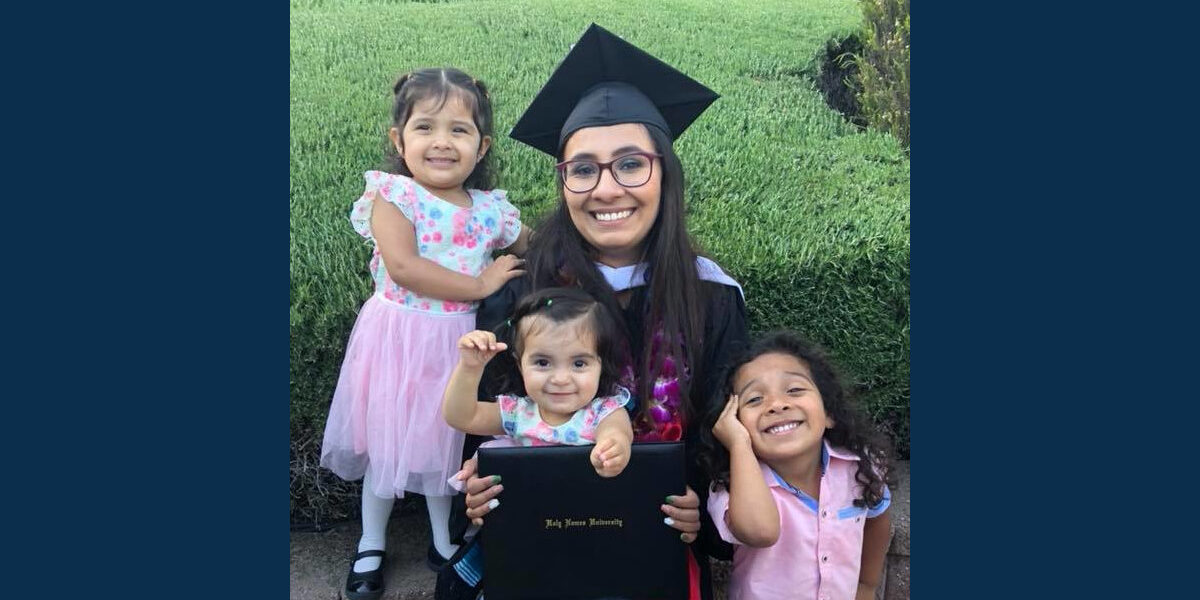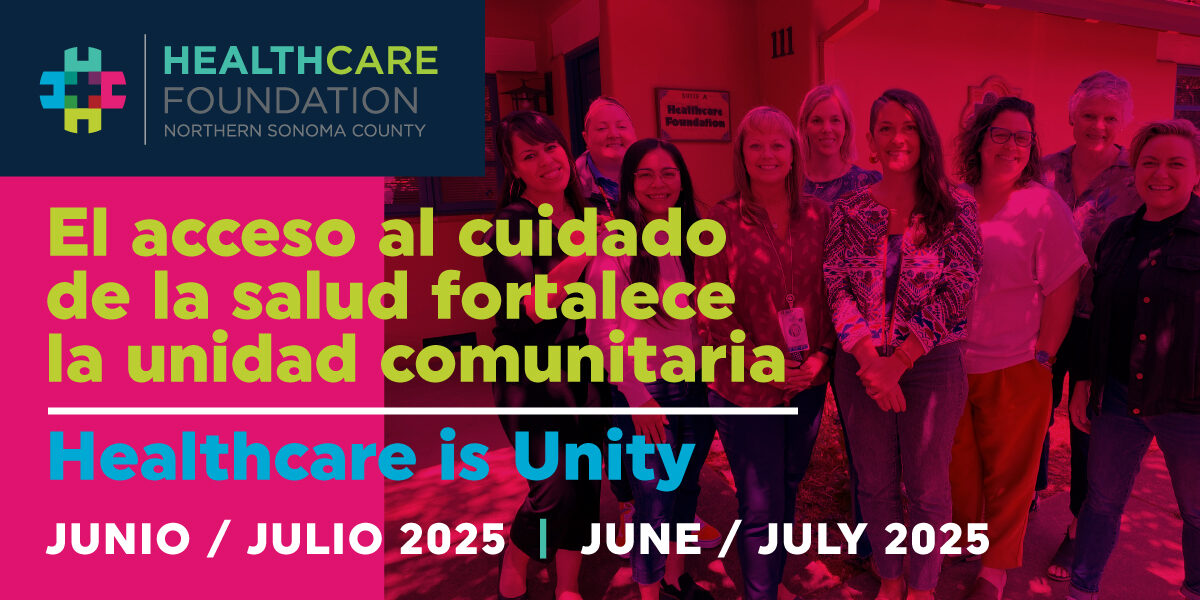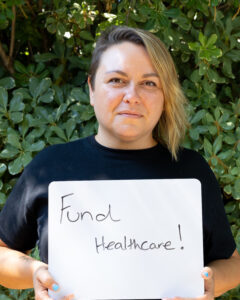

Mental Health Talent Pipeline Spotlight on Claudia Caballero
Last spring, Mental Health Talent Pipeline student Claudia Caballero graduated with a master’s in Marriage and Family Therapy from USF Santa Rosa. Read more about her journey here.

Claudia Caballero graduated last spring with a master’s in Marriage and Family Therapy from USF Santa Rosa. The daughter of immigrants from Michoacán, Mexico, and a mother of three, Claudia works as a school-based therapist in the Santa Rosa public school system, where she uses her training as well as bilingual and bicultural fluency to support the mental health and well-being of middle school students and their families.
“School-based therapy is very different from community-based therapy but I very much love it. We are a familiar face on campus. I’m at two middle schools and one of them is predominantly Hispanic families, so almost every one of my students is bilingual and bicultural,” says Claudia. “I also have students who are monolingual, who only speak Spanish.”
“It’s very important to be able to connect with the children not only in their language but in their culture, and to welcome the parents onboard,” she explains, “especially because mental health is not really something that is talked about within the Hispanic community. Seeing someone within the community working in mental health, talking with them [in Spanish] and being in their children’s school—that definitely opens the door with parents and students.”
“It’s another reason why I love school-based therapy,” she continues, “because the families trust the school system. They send their kids every day to school. They trust that we’ll care for their children and act in their best interests. The parents see me as part of that school system. I tell parents I very much work with the teachers, I work with the counselors, I’m here to support the students. That’s where I start the psycho-education to the parents about mental health, and letting them know that if there are any concerns they have, they can bring those to me.”
In addition to the strong relationship her school-based position allows with the students, Claudia sees a particular opportunity in school-based therapy to overcome hesitancy, build trust, and provide greater access around mental health services for Spanish-speaking families more generally.
“I’m advocating for more mental health professionals within the school system,” she relates, “because I’m seeing how that’s really opening the door to connecting more with our Spanish-speaking families. It’s hard for us to get therapeutic services to the community right now because the wait for appointments is super long. And, unfortunately, sometimes people don’t reach out for fear of the unknown. But with the school, there is that safety. People feel more confident going into the school because they know someone will speak Spanish and they will understand. That’s why I’m advocating for more mental health professionals within our school system—so we can reach more children and more families.”
Claudia was supported in her professional education by a scholarship from the Healthcare Foundation’s Mental Health Talent Pipeline program, which seeks to close the gap in mental healthcare services and access for Latinx residents of northern Sonoma County by making it possible for aspiring bilingual and bicultural mental health professionals like Claudia to pursue their studies and, ultimately, to serve the community here in north county.
“People feel more confident going into the school because they know someone will speak Spanish and they will understand. That’s why I’m advocating for more mental health professionals within our school system—so we can reach more children and more families.”
At the same time, as a mother with a full-time job, it was important for Claudia to find a program like USF’s that accommodates students with full-time employment. She relates how the pieces came together for her.
“My passion is helping those within my community; that’s what led me here,” she explains. “Growing up, we had a lot of foster kids coming in and out of our home, and I would see them often go off to therapy. As I went through my undergrad, my curiosity was geared to wanting to help others, but how? Eventually, in my last year of undergrad, I started attending graduate school open houses, including USF’s open house. What really attracted me was the flexibility of the USF program for those who are working people. It was possible to work full-time and go to school full-time. That’s what really sold me—they offered this opportunity to become a therapist, and what better way to help others?”
For Claudia, working in the Santa Rosa school system has been an ideal way for her to give back to and support her community. It’s also made possible balancing her commitment to her students with the demands of being a mom.
“It’s another reason I love working within the school system,” she says. “It has given me the opportunity to be that full-time clinician and that full-time mom. I work while my kids are at school. I have the same schedule as they do. When they’re on vacation, I’m on vacation. If they have a day off from school, then I have a day off from school. So I’ve been able to do both. That kind of synched schedule would be hard to find in a different setting.”
And as a Sonoma County native, what could be more natural or satisfying, asks Claudia, than being a part of the public school system that originally nurtured her?
“I grew up within Santa Rosa City Schools, so it’s all come full circle,” she notes. “I work alongside the teachers who used to be my elementary teachers or my high school teachers, who gave me so much. We’re now co-workers. It’s been amazing and heartwarming that I’ve circled back to where I started. And now I’m giving, too.”

Related News + Stories
Invest in Our Community
Your support is vital to our collective vision of eliminating health inequities in northern Sonoma County.
Donate



